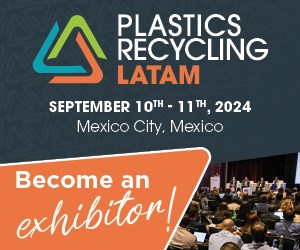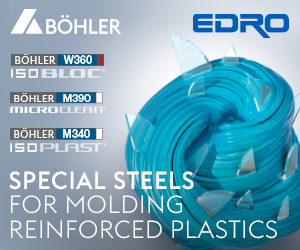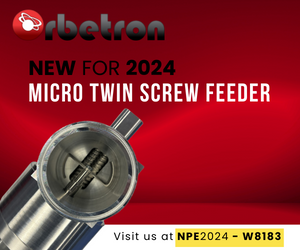Netstal’s Sustainability Performance Recognized
In its first assessment by EcoVadis, the Swiss-based maker of injection molding machines was awarded a Bronze.
Netstal (Näfels, Switzerland) achieved bronze status in its first sustainability assessment by EcoVadis, a global provider of sustainability ratings for companies. Netstal CEO Renzo Davatz noted that the bronze ranking places the company in the top 30% of the more than 120,000 companies across all industries that have been assessed to date by EcoVadis. In the category of special-purpose machinery, the bronze ranking puts Netstal in the top 17% of companies.
To ascertain a company’s ranking, EcoVadis considers 21 sustainability criteria, including environment; labor and human rights; ethics and sustainable procurement. Compared to 2019, Netstal has reduced its CO2 emissions by 80%, with the largest factor in that reduction being a switch to climate-neutral heating from the waste incineration plant in Bilten, less than 10 km from its plant in Näfels. Netstal also switched the process heat required in production from gas to district heating to completely decouple the company from gas. The remaining CO2 emissions are attributable to electricity consumption and the currently operated vehicle fleet, which Netstal says it will seek to further optimize.
In terms of Netstal’s water consumption, the company used 200,000 m3 a decade ago, but reduced that figure to approximately 75,000 m3 last year. The goal in 2023 is to further reduce consumption to around 60,000 m3. In terms of sustainable procurement, Netstal says it currently ranks among the top 7% of evaluated companies in the special-purpose machinery sector. Netstal is part of the KraussMaffei Group of plastics machinery equipment suppliers.
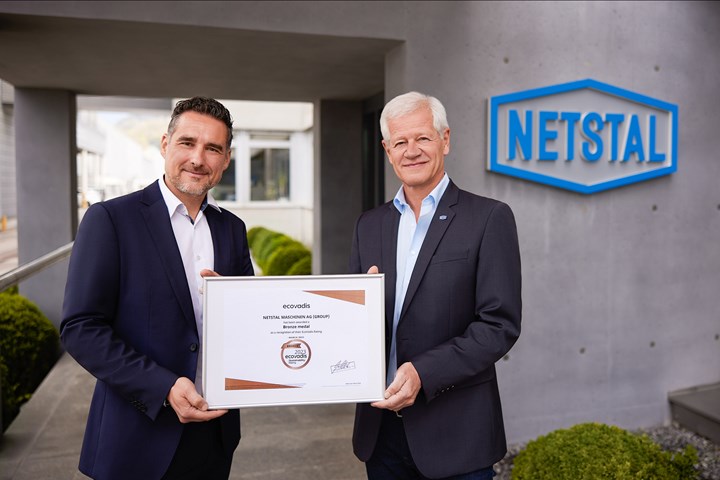
Netstal CEO Renzo Davatz (left) and Michael Rocholl, head of quality and process management, showcase the company’s newly awarded bronze EcoVadis certificate.
Photo Credit: Netstal
Related Content
-
Scaling Up Sustainable Solutions for Fiber Reinforced Composite Materials
Oak Ridge National Laboratory's Sustainable Manufacturing Technologies Group helps industrial partners tackle the sustainability challenges presented by fiber-reinforced composite materials.
-
Compatibilizers Aid Recycling & Upcycling of Mixed Resins
Compatibilizers are proving their worth in boosting critical properties such as impact/stiffness balance of PCR and PIR blends of polyolefins and other plastics.
-
Recycling: What's Ahead in Advanced Sorting Technology
As the industry tries to ramp up recycling, there are several innovative sorting solutions in the offing—ranging from enhanced optical sorting technologies and chemical tracers to advanced solutions based digital watermarks and artificial intelligence.

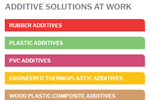


 (2).jpg;maxWidth=300;quality=90)


